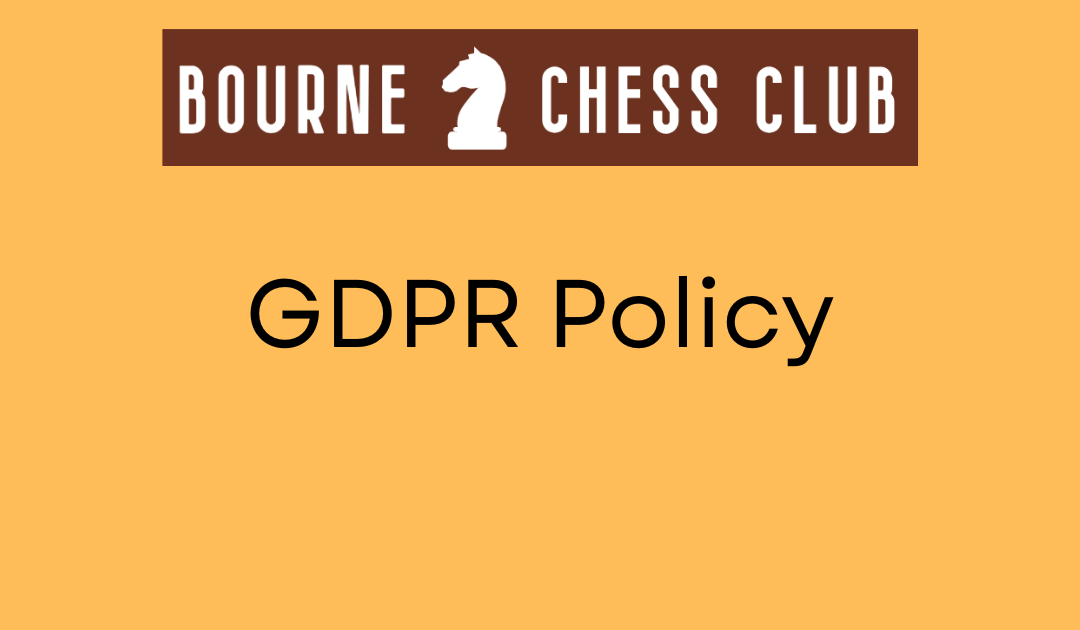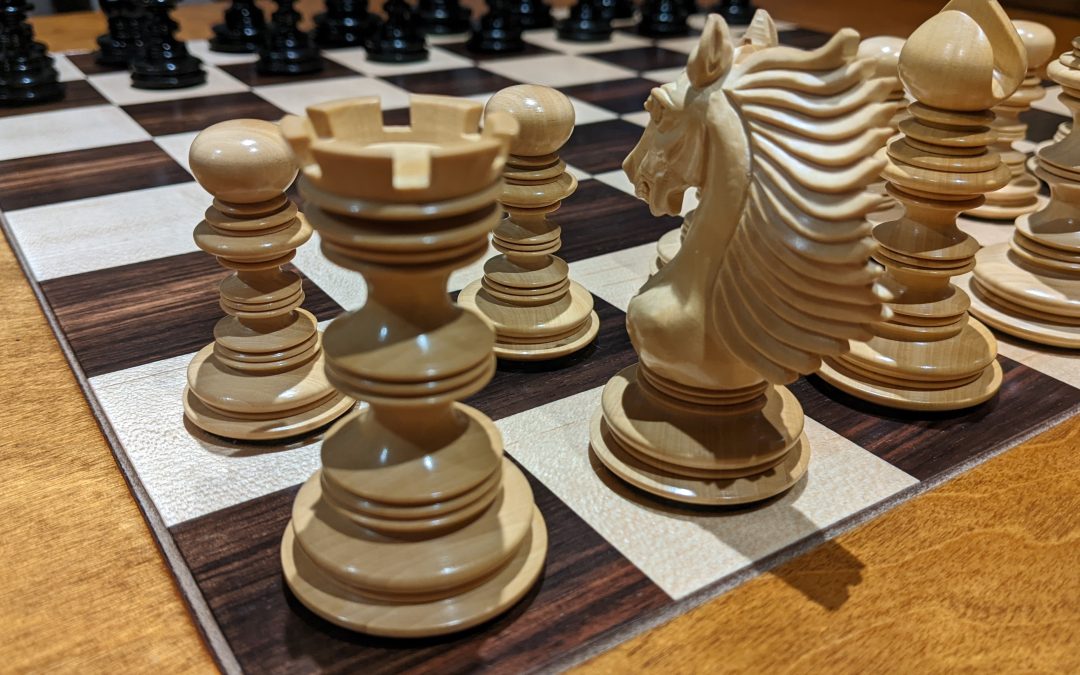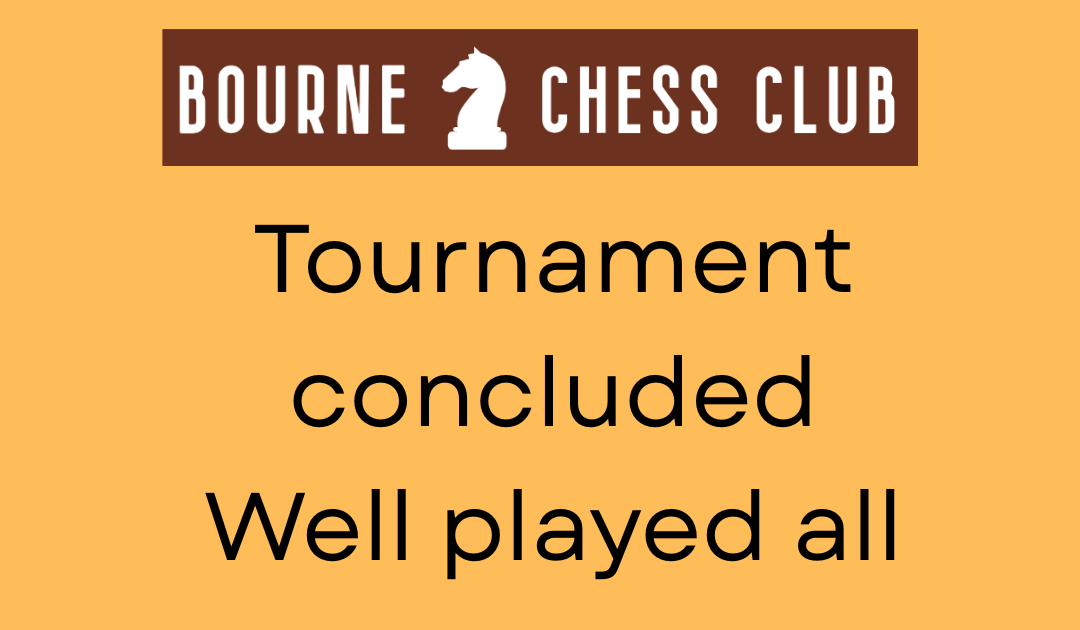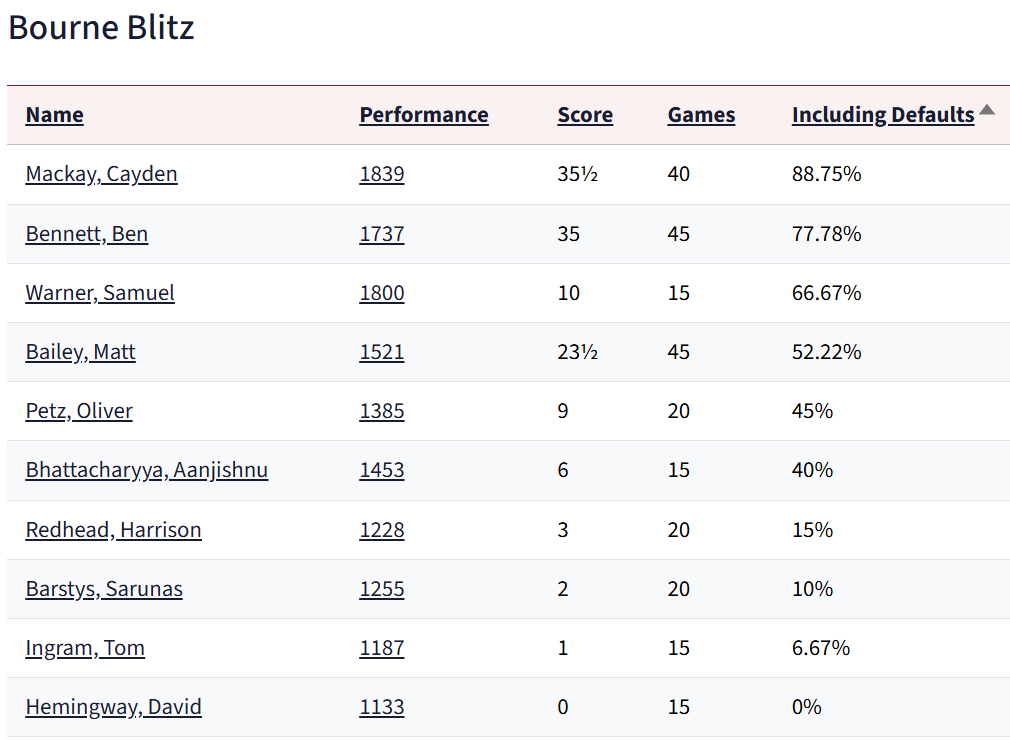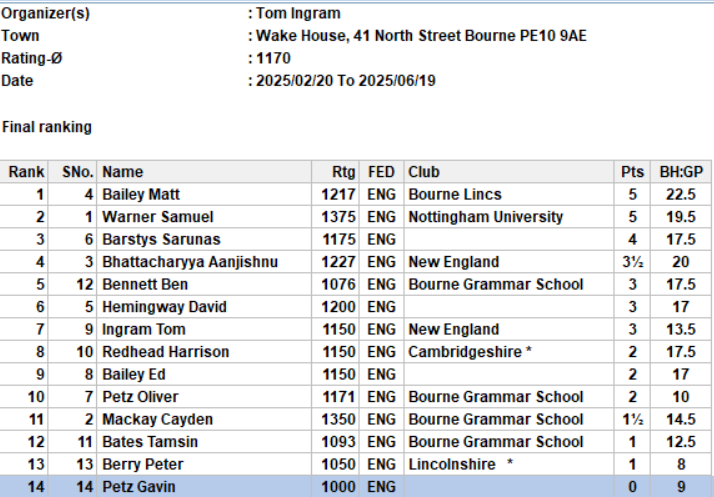Bourne Chess Club – Constitution v4
General
Bourne Chess Club (BCC) was established in March 2024, as a non-profit organisation without charity status.
It exists primarily for the residents in Bourne, Lincolnshire, although is not limited geographically regarding its membership.
It welcomes all ages and abilities and encourages members with any special educational needs and is able to comfortably accommodate people with physical disability.
Objectives
To provide a safe environment for the playing of chess
To compete in regional chess leagues
To provide a structured learning programme for Juniors
To enable people to practice playing chess in a variety of formats
To create a social network of friends
To organise charitable events
To offer internal league competitions
To affiliate to the Cambridgeshire County Chess Association (CCCA) & Lincolnshire Chess Association
To abide by ECF policies as appropriate to running a chess club
Members
To become a member of BCC requires written consent to our ‘Privacy Policy’, ‘Safeguarding Policy’ and ‘Rules of the Club’
A member agrees to the monthly payment of a subscription (on the 28th), the amount is determined by the Committee and subject to change at the AGM
Each member has the right to a vote at the AGM provided the member is up to date with their monthly subscription
A member will cease to be a member by order of the Committee if the Committee believes that to be in the best interests of BCC. In such circumstances, the member has the right on one occasion to raise an appeal to the decision, in writing, and the Committee will review the decision and provide the outcome within 28 days of the appeal.
To agree to indicate membership to BCC when participating in any external tournaments not organised by BCC
Committee
The Committee will comprise of unpaid volunteers and will endeavour to include the roles of: Chairperson, Vice-Chairperson, Secretary, Treasurer, Captain(s), Internal League Co-ordinator, Junior Club Officer, Designated Safeguarding Officer, Parent Liason Officer, External League Co-ordinator.
The Committee will formally meet on occasion it sees fit, although the AGM is fixed as once per year (June/July).
The Committee will endeavour to facilitate the normal running of the club and all that entails without the necessity for in-person meetings, where actions can be taken within a secure on-line platform. A minimum of three persons shall constitute a quorum for the purpose of decision making (one of whom must be the current Chair or Vice-Chair). Majority vote applies for authorising actions. This includes the resolution of disputes and complaints (see below).
In the event of a tied vote, the Chair shall have the casting vote.
AGM
To include:
Election of the Committee for a further year term
Review of financial status
Review of member’s monthly subscription
Other matters as proposed by the Committee
Matters as raised by member attendees
AOB – matters as raised by non-members
Disputes
When a member has a dispute with an incident relating to an external league, playing as a team member of BCC as opposed to individual entry, the member may bring that to the attention of their captain who can escalate to the Committee if required.
Any disputes relating to an internal league organised by BCC, should initially be addressed to the Internal League Co-ordinator for internal resolution. The issue can be escalated to the Committee as required.
Any disputes that directly involve the conduct of a Committee member will be resolved without the Committee member.
Complaints
All matters of complaint relating to the conduct of a member or Committee member will be automatically brought to the attention of the Chair, or in the case of it involving the Chair, it will be brought to the attention of the Vice-Chair, for resolution by a Committee meeting (as above).
In the event of a complainant being unhappy with the resolution, they are to be given contact details of the CCCA (Cambridgeshire County Chess Association) or Lincs County Chess Association and if appropriate, the ECF (English Chess Association).
Officer Responsibilities
Safeguarding
1. Maintain BCC Safeguarding Policy and align to ECF guidelines 2. Be first point of contact for any safeguarding issues that may arise and inform Committee immediately 3. Provide awareness training as appropriate 4. Hold a valid enhanced DBS certificate
Captain
1. Selecting the team in a timely manner and informing members 2. Liasing with our team members regarding how transport is going to be arranged for away matches 3. Picking up the kit to take to our venue for home matches, collecting kit at end of night and looking after it until it is returned to Wake House storage cupboard. 4. Liasing with our home venue once the fixture list has been published from the appropriate county league 5. Ensure venue booking is secured for home match nights. 6. Liase with opposing Team Captain one week in advance to ensure the match is arranged. 7. Acting as first point of contact in the event of any dispute in match play 8. Relay to Committee the overall strategy for team selection for the season
(Players/parents who volunteer to assist with transport to away fixtures do so with no conditions: financial or otherwise)
Club Secretary
1. Monitor and provide an initial response to all emails that come through on the club email account. 2. Arrange all documentation for the club in an orderly fashion so that the Committee has easy access to hard copies of: previous minutes, actions voted on within the WhatsApp Committee Group, external league communications, correspondence relating to Juniors Club and Wake House and grants. 4. Ensure invoices/receipts and previous stock checks of equipment are all filed in one place. 5. To welcome new enquiries either via email or in person, and ensure they are provided with the relevant documents to join (Safeguarding Policy, Rules of Club, Membership Application Form). 6. To be the first point of contact for all written communications in and out for the club. 7. To record accurate and full minutes of face to face meetings. 8. Maintain a timely written record of total number of members who are active, Committee Officer appointments and resignations. 9. Ensure the club notice board is kept up to date with important documents e.g. fire regs, safeguarding, up and coming regional tournaments. 10. Record and manage any complaints ensuring timescales are adhered to.
Vice-Chair
1. To act as Chair of the club in the absence of the current Chair (both in person at the club and online). 2. To be automatically elected as Chair in the event of the current Chair no longer being in post. 3. To have voting rights as Chair (as per the Constitution) in the absence of the current Chair.
Internal League Co-ordinator
1. To canvas the wishes of club members regarding internal competitions and make future proposals for Committee to consider. 2. To act as the focal point for recording/tracking results of internal competitions (when appropriate) 3. To formally propose and when approved by the Committee publish the rules for each tournament 4. To be the first point of contact for any dispute/complaint regarding the running of internal league competition and immediately inform the Club Secretary. 5. To make initial attempts to resolve disputes and in any case, relay any such matters to the Committee (as a whole) immediately. 6. To propose to the Committee whether any future internal league competitions should be worthy of a winning trophy. 7. To formally record for the Club Secretary all winners of internal league competitions including the title and date of the competition. 8. in the event of internal competitions being formally recorded on LMS or SwissManager, ensuring the results are input and future rounds published (as appropriate)
Junior’s Club Co-ordinator
1. Ensure appropriate Safeguarding qualification as per ECF guidelines 2. Oversee safeguarding matters at all times the Juniors Club is in session. 3. Liase with parents (online and in-person). 4. Propose to Committee the structure of the Junior Club syllabus 5. Propose to the Committee any intentions of formal, external grade schemes 6. Conduct sessions and give Committee advanced notice if unable to. 7. Organise and monitor any assistance provided by club members (ensuring they are not the sole providers of training given) 8. Propose any internal/external tournaments to the Committee. 9. Keep a running log of active Junior members and ensure this is provided to Club Secretary in a timely manner 10. Be the first point of contact for any dispute/complaint from any parent, and escalate to Committee via Club Secretary immediately. 11. Ensure all club equipment is properly maintained and remains fully complete 12. Collect any income from parents and transfer to club account in a timely manner. 13. Ensure all parents are handed all relevant paperwork prior to joining e.g. Safeguarding Policy, Member Application Form 14. Be the first point of contact on the Juniors Club WhatsApp group 15. Propose to Committee any marketing plan for the Juniors Club
